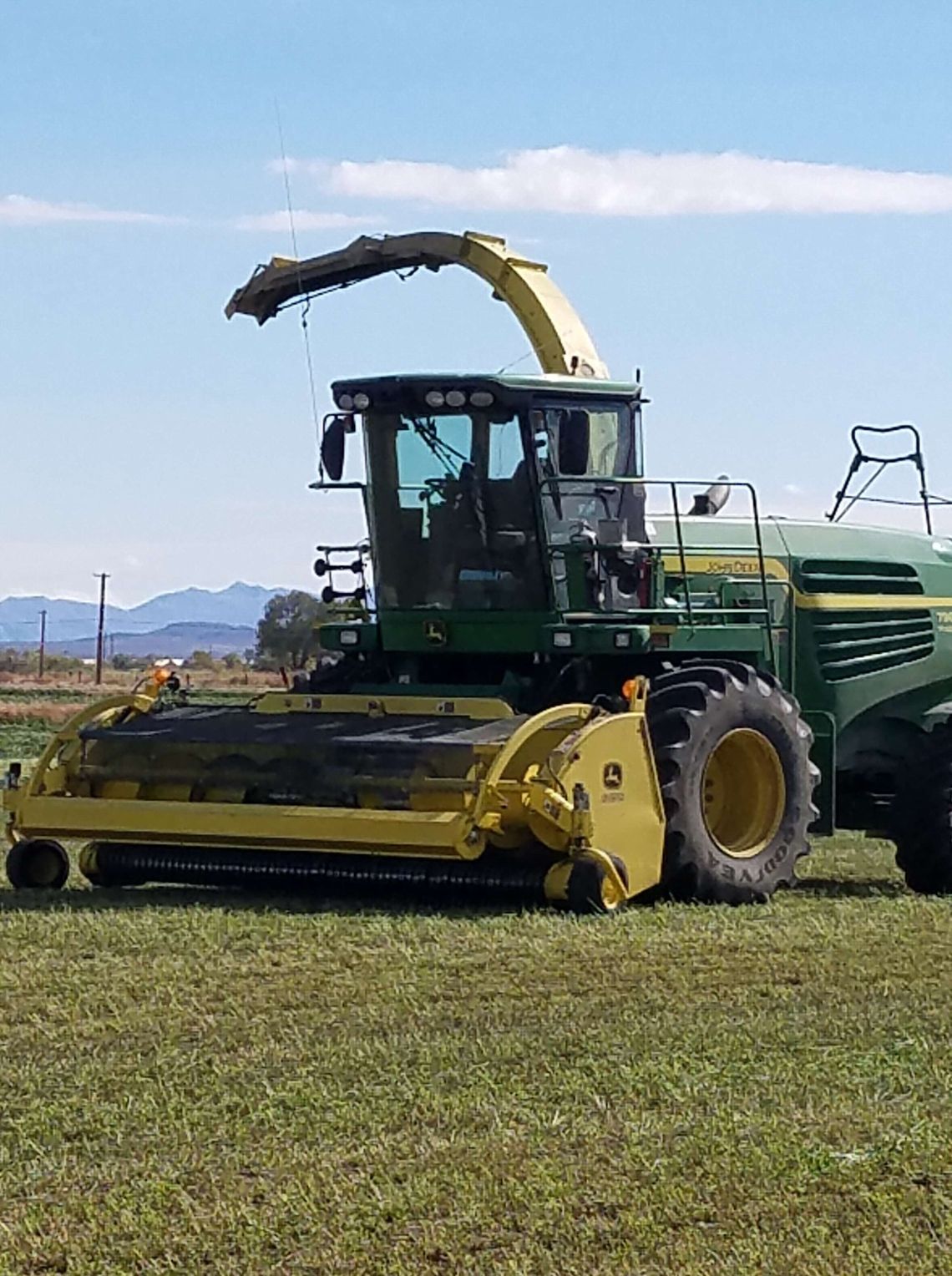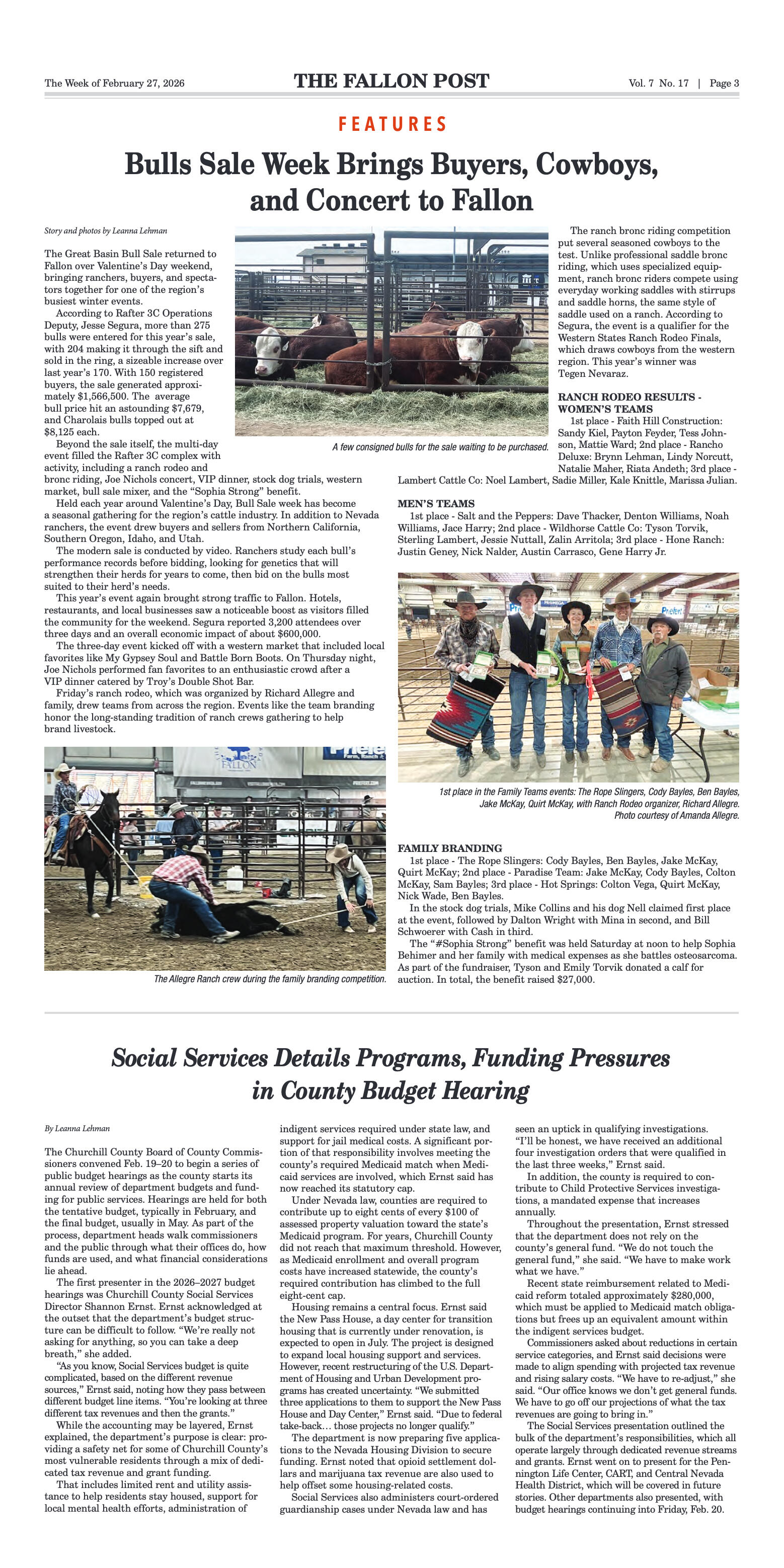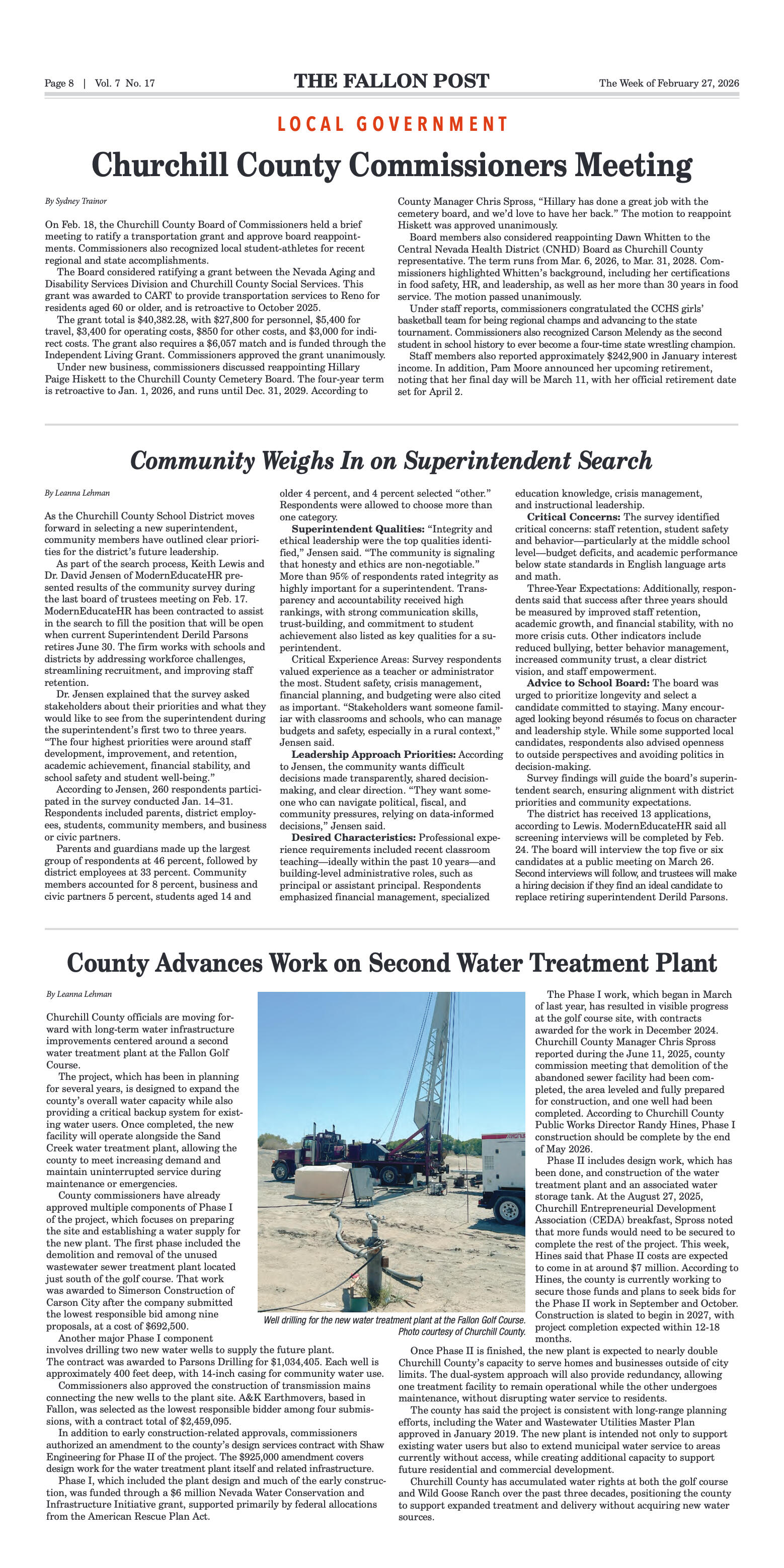Nevada lawmakers are moving forward with legislation that could significantly alter working conditions for agricultural employees across the state — changes that would especially impact Northern Nevada's farms, dairies, and ranches.
Senate Bill 172, known as the Agricultural Workers' Bill of Rights, introduced by Senator Edgar Flores (D-Las Vegas) earlier this year, includes a broad range of labor protections for farmworkers, a group historically exempt from many federal and state labor laws.
Initially, SB 172 proposed agricultural employees would become eligible for overtime pay after eight hours in a day or 40 hours in a week — a significant shift from current practice. Employers would also be required to provide rest and meal breaks, meet specific standards for employer-provided housing, and allow service providers like legal aid or healthcare professionals to visit workers living on-site.
However, the legislation was amended in April to exclude overtime requirements.
If passed, the legislation would grant agricultural laborers the right to collectively bargain and establish an Advisory Committee on Agricultural Work to oversee implementation and provide guidance to state officials.
These changes are long overdue and much needed, say SB172 supporters. They point out that agricultural laborers often face physically demanding work in extreme weather conditions without the basic protections afforded to workers in other industries.
"Agricultural workers are essential to our economy and our food supply," Flores said during a committee hearing. "They deserve dignity and fairness in the workplace."
However, not everyone agrees on the bill's approach or potential consequences.
Northern Nevada's agricultural producers, particularly dairy operators, have voiced concern about the financial burden the proposed requirements could place on tight margins. Three Northern Nevada dairymen expressed concern about the proposed legislation but declined to comment.
Industry groups have warned the bills could significantly raise operational costs, making it harder for smaller, family-owned farms to compete. Some have also raised questions about whether the changes could make finding and retaining workers more difficult, particularly during peak seasons like harvest and calving.
Opponents also note that many farms already provide housing and additional worker support. A one-size-fits-all approach may not work across Nevada's diverse agricultural landscape, where operations range from large corporate farms to small family dairies and ranches.
Lawmakers are currently reviewing the financial impact the bill could have on state agencies tasked with enforcement, as well as the broader economic ripple effects on Nevada agriculture.
The conversation around agricultural labor protections is not new. Neighboring states like California and Oregon have adopted similar measures in recent years, requiring overtime pay and improving conditions for farmworkers. Supporters of SB 172 argue that Nevada is simply catching up. Others worry the state could lose its competitive edge in an already challenging agricultural economy.
In addition to SB 172, legislators are considering Senate Bill 233, which would create a Task Force on Farm Labor. That group would study agricultural labor issues in more detail and recommend future policy changes.
The Agricultural Workers' Bill of Rights would mark one of the most significant shifts in Nevada's agricultural labor laws in decades. The final outcome could reshape employment practices across Northern Nevada's dairies, alfalfa fields, vineyards, and ranches — producers are closely watching.
As of April 29, 2025, SB172 remains under review in the Senate Finance Committee. The bill has received an exemption from standard legislative deadlines, allowing it to continue through the legislative process beyond the usual cutoff dates.













































Comment
Comments